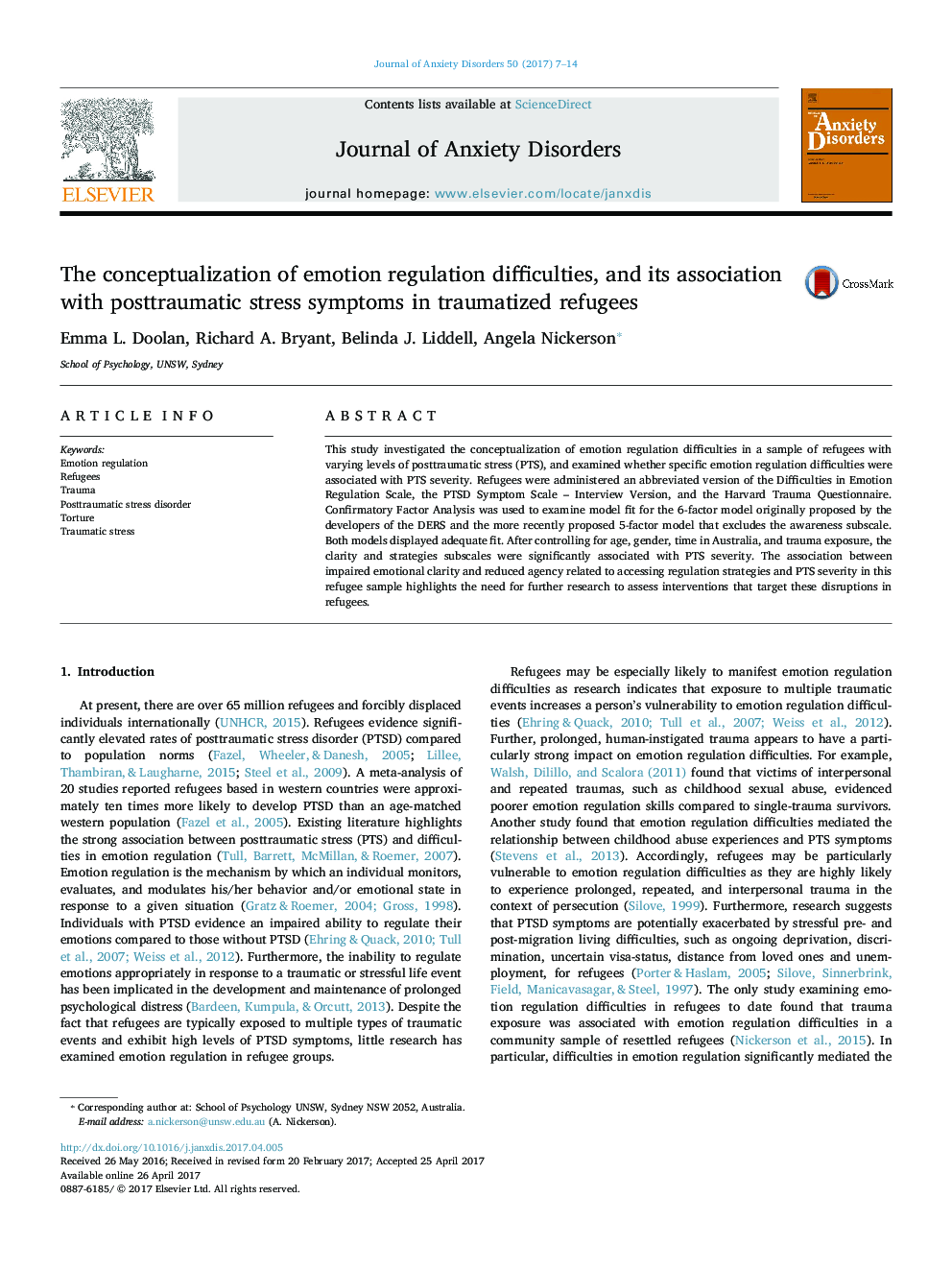| Article ID | Journal | Published Year | Pages | File Type |
|---|---|---|---|---|
| 5038831 | Journal of Anxiety Disorders | 2017 | 8 Pages |
â¢We investigated the conceptualization of emotion regulation difficulties in refugees.â¢We interviewed 147 resettled refugees from a variety of backgrounds.â¢Models of emotion regulation difficulties with 5 and 6 factors showed adequate fit.â¢Factor correlations were significant for all subscales except awareness.â¢Specific types of emotion dysregulation predicted posttraumatic stress symptom severity.
This study investigated the conceptualization of emotion regulation difficulties in a sample of refugees with varying levels of posttraumatic stress (PTS), and examined whether specific emotion regulation difficulties were associated with PTS severity. Refugees were administered an abbreviated version of the Difficulties in Emotion Regulation Scale, the PTSD Symptom Scale - Interview Version, and the Harvard Trauma Questionnaire. Confirmatory Factor Analysis was used to examine model fit for the 6-factor model originally proposed by the developers of the DERS and the more recently proposed 5-factor model that excludes the awareness subscale. Both models displayed adequate fit. After controlling for age, gender, time in Australia, and trauma exposure, the clarity and strategies subscales were significantly associated with PTS severity. The association between impaired emotional clarity and reduced agency related to accessing regulation strategies and PTS severity in this refugee sample highlights the need for further research to assess interventions that target these disruptions in refugees.
